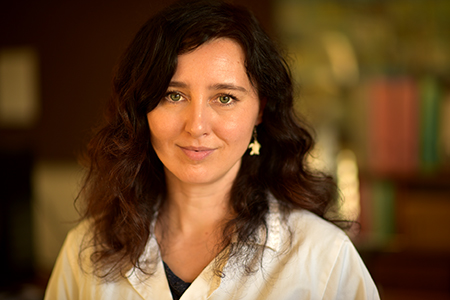Using genomics to understand and protect the African continent’s biodiversity could improve the resilience of plants, animals and other life forms to climate change, with a knock-on effect on food security, says North-West University (NWU) researcher Dr Roksana Majewska.
She and fellow researchers at the African BioGenome Project (AfricaBP) have undertaken to safeguard and preserve African genomic biodiversity through an Africa-led effort to sequence the genomes of plants, animals, fungi and protists that are endemic to the continent.
Dr Majewska, who is also the chair of the AfricaBP Pilot Committee, says that since its inception AfricaBP has built a compelling case for the need to understand the continent’s biodiversity through genomics and ensure the sustainable use of native flora and fauna.
“For instance, culturally relevant food resources such as orphan crops and other staples that are crucial to regional food security remain unsequenced. This genetic information is important to safeguard biodiversity and improve resilience in response to future environmental pressures such as climate change.
“Therefore, collecting, sequencing and storing genomic information on the continent – by and for the African people – is a fundamental priority for AfricaBP.”
Dr Majewska says that AfricaBP and future projects that will stem from its discoveries and achievements will build resilience in breeding sustainable food systems and biodiversity conservation across the continent. In turn, this will contribute to delivering on the goals of the post-2020 Global Biodiversity Framework of the Convention on Biodiversity and the United Nations Sustainable Development Goals, while complementing efforts by the Human Hereditary and Health consortium.
However, these goals of AfricaBP cannot be accomplished without support from African governments, the African Union Commission, national and regional agencies and international partners and organisations. Dr Majewska says that, in addition to policies to support AfricaBP, African governments need to work in collaboration with regional and international partners to invest in the infrastructure to support genomics and bioinformatics on the continent.
“Beyond the direct benefits of new technology and economic growth guaranteed by discoveries and investments in genomics and bioinformatics in Africa, AfricaBP also plans to develop a knowledge hub for the field,” she concludes.
About AfricaBP
The pilot launch of AfricaBP took place in June 2021 and it now hosts 109 African scientists and 22 African organisations representing researchers, institutions and corporations from all five regions in the African Union.
AfricaBP is a partner in three complementary large-scale, global genomic efforts such as the 10 000 Plant Genomes Project, the Vertebrate Genomes Project and the Earth BioGenome Project.
The NWU already contributes to the AfricaBP agenda via the Epizoic Diatom Genomes Project, which is focused on sequencing the genomes of highly unique animal-associated algae from Africa. This project is led by Dr Majewska and Dr Marianne Pretorius from the NWU’s Biochemistry subject group and is supported by collaborators from Unisa and the National Institute for Communicable Diseases.
Overall, AfricaBP is committed to improving food security, conserving natural resources and sharing open data in an inclusive and equitable way that centres on the priorities of the African people.
It is an ambitious and promising project ready to lead the continent into the next big stage of research and innovation.

Dr Roksana Majewska
